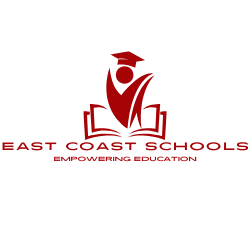Internships have long been seen as a crucial stepping stone for college students transitioning into the workforce. For decades, East Coast colleges have built their career development models around connecting students with summer internships at prestigious firms, Fortune 500 companies, and government agencies. However, a significant shift is underway — traditional internships are becoming harder to secure, more competitive, and in some cases, less relevant to the evolving job market. This decline is forcing East Coast colleges and their graduates to rethink how they prepare for life after graduation.
Why Traditional Internships Are Declining
Several factors are contributing to the decline of traditional internships at East Coast colleges:
✅ Remote Work Revolution
The rise of remote work has changed how companies approach internships. Many businesses have downsized or eliminated in-person internship programs, opting instead for virtual internships — or scrapping them altogether. Remote internships often provide fewer networking opportunities, less hands-on experience, and reduced engagement with company culture.
✅ Economic Instability and Hiring Freezes
Economic downturns and hiring freezes have led companies to cut back on internship programs to save costs. Industries that historically provided large numbers of internships, such as finance, media, and technology — many of which have hubs on the East Coast — have tightened budgets, leaving fewer openings for college students.
✅ Increased Use of AI and Automation
AI-driven recruitment tools are now screening candidates more aggressively, making it harder for students without extensive experience to land internships. Automation has also reduced the need for entry-level and intern-level roles, as many companies now rely on AI to handle tasks that interns used to manage.
✅ Rise of Project-Based Work and Freelancing
Instead of hiring interns, some companies are outsourcing short-term work to freelancers and gig workers. This shift reduces the number of structured internship opportunities, particularly at startups and smaller firms.
The Impact on East Coast College Graduates
The decline of traditional internships is creating significant challenges for graduates of East Coast colleges:
👉 Weaker Professional Networks
Networking has always been a cornerstone of career success, especially for graduates from elite East Coast schools. Without structured internships, students are losing key opportunities to build relationships with industry insiders, alumni, and potential mentors.
👉 Skills Gap Upon Graduation
Internships provide real-world experience that classroom learning cannot replicate. Without this exposure, graduates are entering the workforce with less practical experience, leaving them at a disadvantage in competitive job markets.
👉 Longer and Harder Job Searches
Graduates without internship experience are struggling to meet the “minimum experience” requirements for entry-level jobs. This often leads to longer and more frustrating job searches, with some graduates settling for underemployment.
👉 Reduced Access to Competitive Industries
Industries like finance, consulting, and tech have long relied on internships as recruitment pipelines. With fewer internships available, students from non-elite backgrounds or underrepresented communities face greater difficulty breaking into these competitive fields.
How East Coast Colleges Are Adapting
In response to these challenges, many East Coast colleges are restructuring their career development programs to provide alternative pathways for professional experience:
🔹 Micro-Internships
Some East Coast colleges are partnering with companies to create short-term project-based internships that last a few weeks instead of a full semester or summer. These micro-internships allow students to gain real-world experience without the logistical challenges of traditional internships.
🔹 Experiential Learning Programs
Colleges like Northeastern and Drexel have expanded co-op programs, where students alternate between full-time work and classroom learning. This model provides deeper, more sustained professional experience than traditional internships.
🔹 On-Campus Industry Partnerships
Top East Coast colleges are bringing companies directly to campus through industry-sponsored research projects, case competitions, and live consulting opportunities. Students can work with companies without needing to secure an off-campus internship.
🔹 Virtual Career Development Platforms
Schools are investing in AI-powered career development platforms that connect students with industry mentors, alumni, and recruiters. These platforms offer more flexible, scalable opportunities for professional growth.
What This Means for Future Graduates
The decline of traditional internships signals a shift in how students must prepare for their careers. Future graduates from East Coast colleges will need to:
✔️ Focus on building a strong personal brand through LinkedIn and other professional platforms.
✔️ Engage in project-based work, even if it’s not tied to a formal internship.
✔️ Leverage alumni networks and on-campus career centers to secure industry connections.
✔️ Develop skills in areas that are hard to automate, such as critical thinking, emotional intelligence, and strategic communication.
Conclusion
The internship landscape at East Coast colleges is changing rapidly. While the decline of traditional internships presents challenges, it also opens the door for new and innovative approaches to career development. By adapting to these shifts, East Coast colleges and their graduates can maintain their competitive edge in an evolving job market.
